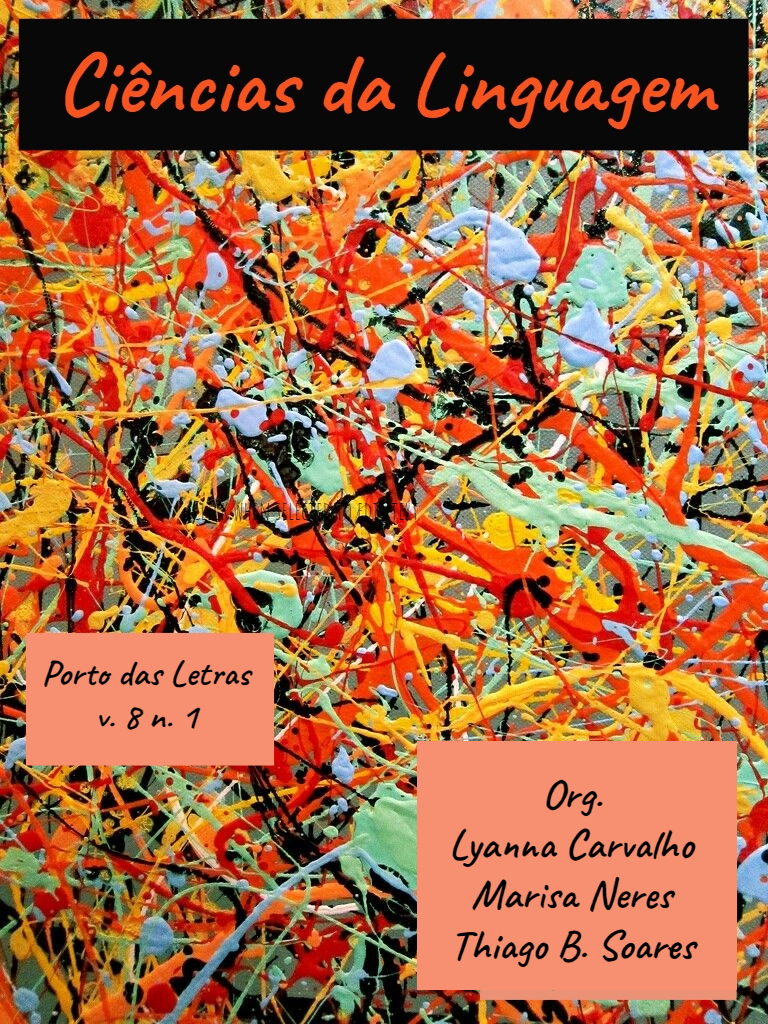O uso do pronome oblíquo mim exercendo a função de sujeito em dados do “NURC/RJ”
Abstract
Resumo: A língua não é estática e o falante é o principal responsável pelas mudanças linguísticas que ocorrem dentro de uma comunidade de fala. Essas mudanças podem ocorrer sincronicamente e diacronicamente. Desse modo, na perspectiva diacrônica, o presente estudo busca analisar o uso do pronome oblíquo mim exercendo a função de sujeito no lugar do pronome de caso reto eu, presente em algumas entrevistas do Projeto Norma Urbana Culta do Rio de Janeiro. Temos como principal aparato teórico a mudança linguística. Para reforçar nossa análise, descrevemos a forma como as gramáticas normativas tratam e classificam os pronomes pessoais. Para a obtenção dos dados, realizamos uma busca minuciosa em todo o corpus do Projeto NURC-RJ. De todo o corpus analisado do Projeto NURC-RJ, constatamos onze ocorrências do fenômeno estudado. Após isso, analisamos os dados obtidos das falas do NURC-RJ e constatamos que os falantes empregam o pronome mim como sujeito antecedendo verbos no infinitivo. Concluímos que isso ocorre porque os pronomes pessoais da Língua Portuguesa Brasileira perderam a flexão de casos e, em decorrência disso, os falantes empregam os pronomes mim e eu em posições diversas dentro do texto, podendo funcionar tanto como sujeito quanto objeto indireto.
Palavras-chave: Pronomes pessoais; Mudança linguística; Gramática normativa; Projeto NURC-RJ.
Literaturhinweise
CASTILHO, Ataliba T. de. Gramática do Português Brasileiro. São Paulo: Contexto, 2019.
CASTRO, Ivo. Curso de História da Língua Portuguesa. Universidade Aberta, 1991.
COUTINHO, Ismael de Lima. Gramática Histórica. Rio de Janeiro: Imperial Novo Milênio, 2011.
CUNHA, Celso; CINTRA, Luís F. Lindley. Nova Gramática do Português contemporâneo. Rio de Janeiro: Lexikon, 2008.
FARACO, Carlos Alberto. Linguística histórica: uma introdução ao estudo da história. São Paulo: Parábola Editorial, 2005.
M. Said Ali. Grammatica Histórica da Língua Portugueza. São Paulo, 1931. Disponível em: <https://archive.org/details/M.saidAli.grammaticaHistoricaDaLinguaPorugueza/page/n1/mode/2up> Acesso em: 06 de out. de 2020.
Projeto Norma Linguística Urbana Culta – RJ. Histórico do Projeto. Universidade Federal do Rio de Janeiro, 2020. Disponível em: <https://nurcrj.letras.ufrj.br/> Acesso em: 15 de out. de 2020.
Projeto Norma Linguística Urbana Culta – RJ. Corpora. Universidade Federal do Rio de Janeiro, 2020. Disponível em: < https://nurcrj.letras.ufrj.br/> Acesso em: 15 de out. de 2020.
SACCONI, Luiz Antônio. Nossa Gramática: teoria e prática. São Paulo: Atual, 1994.
Downloads
Veröffentlicht
Zitationsvorschlag
Ausgabe
Rubrik
Lizenz
Os autores concordam com os termos da Declaração de Direito Autoral, que se aplicará a esta submissão caso seja publicada nesta revista (comentários ao editor podem ser incluídos a seguir).

